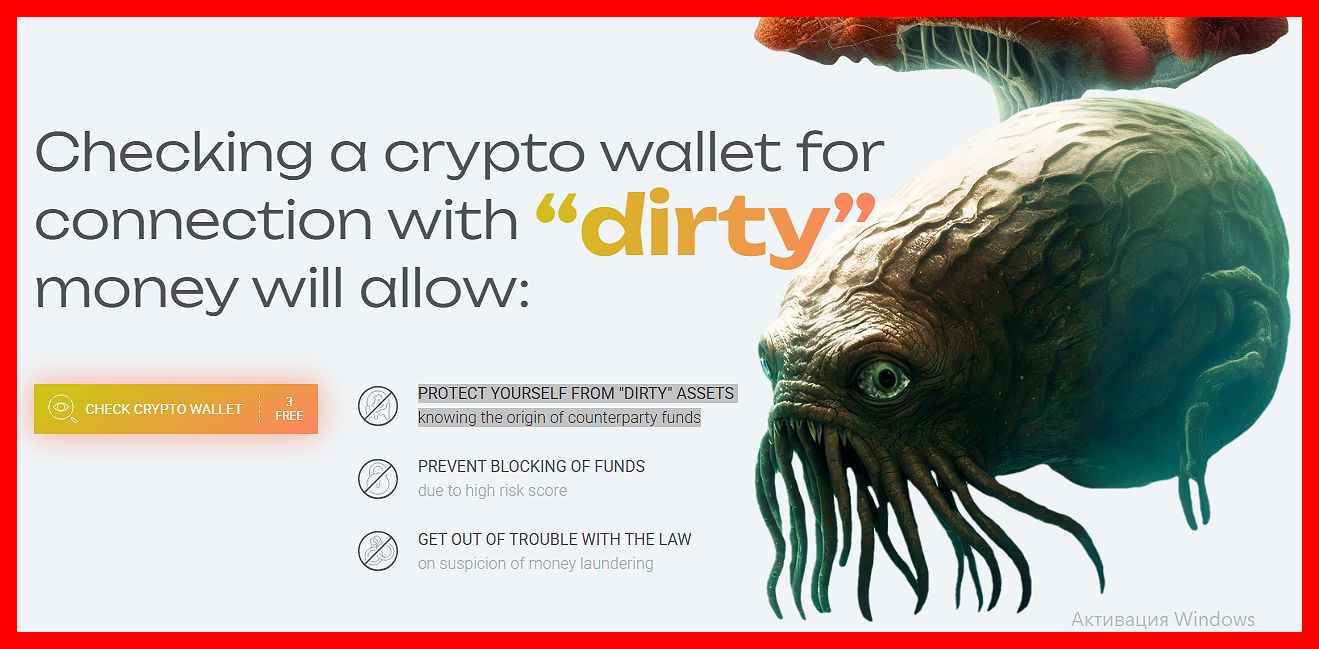The starting signal for “hyperbitcoinization”?
 Flag from El Salvador. Image by Nicolas Raymond via Flickr.com. License: Creative Commons
Flag from El Salvador. Image by Nicolas Raymond via Flickr.com. License: Creative Commons
Aaron Koenig is a lot in the global, especially Latin American Bitcoin world. It is therefore worth reading what he writes about El Salvador’s decision to recognize Bitcoin as a legal means of payment.
It was a few days ago, but an event in June 2021 was simply too important so as not to mention it again. In Miami around 15.000 bitcoiners for the largest crypto conference of all time together. The appearance of Jack Mallers, CEO of the Strike payment platform, was expected with special excitement. After all, he was not entirely announced as “a small step for Bitcoin, a big leap for humanity”, in the style of Neil Armstrong, the first person on the moon.
Jack speaks of his experiences with the Bitcoin Beach project, a village completely converted to Bitcoin on the coast of El Salvador, and how he got to know the president of this smallest Central American state. Then he plays a video message from President Nayib Bukele. The latter announces a law that makes Bitcoin a legal means of payment El Salvadors. Deafening jubilation breaks out when the Bitcoin community experiences this. Under standing ovation, the Mallers crying before the emotion of the national team El Salvadors is over.
This news, according to the general tenor, will help Bitcoin breakthrough. The “hyperbitcoinization”, ie the changeover of the entire global financial system to decentralized, non-state money, seems to be a big step closer. In fact, the “Ley Bitcoin” is on 8. June 2021 adopted by Parliament El Salvadors with a large majority. Probably only through the introduction of Bitcoins many people know where El Salvador is at all: on the Pacific coast, between Guatemala and Honduras. But what significance does this new law really have?
Home transfers via Lightning Network
El Salvador is one of the poorest and most violent countries of Latin America. The residents terrorize drugs. Robberies, shootings and kidnappings are the order of the day. Crime has decreased significantly under President Bukele in recent years, but around 2 million of the 6.5 million Salvadoreños have left the country to look for their luck somewhere else, most in the USA. Its transfers to the home country make up around 22 percent of the Salvadorian gross national product. So far, services such as Western Union or Money Gram have been used for this, which collect horrendous fees. More than 70 percent of El Salvador’s inhabitants have no bank account, so they have so far been no other choice than to pay them.
Bitcoin had changed drastically. Salvadorians who live abroad are now transferring money to their families who stayed at home in Bitcoin. For this they mainly use the Lightning Network, which is based on Bitcoin, and makes payments possible, anonymous and for fractions of cents. As in most developing countries, hardly anyone has a bank account, but almost everyone a smartphone with internet access – and you don’t need more to accept and send bitcoins. Instead of pilgrimage to the next Western Union branch, disclosing his personal data there in order to obtain part of the money after deducting the fees, even the smallest amounts can now be transferred to your cell phone in a matter of seconds, which only costs breasts from cents.
That was like that before the Ley Bitcoin. Bitcoin did not need a law to arrive in El Salvador. But Bitcoin has strengthened and legitimized Bitcoin.
The president becomes aware
In September 2021 the Bitcoin Act came into force. Every citizen El Salvadors who downloads a Bitcoin app receives from the Bitcoin government worth $ 30. Where this money comes from is not known, presumably by large donors from the Bitcoin scene. The Bitcoin Beach in the village of El Zonte is already financed by the Bitcoin millionaire Michael Peterson and his non-profit organization Mission Sake. The project was initiated by Jorge Valenzuela, who was born and raised in El Zonte. From a simple background, he became a successful entrepreneur and has been supporting his community for a long time, where it was only possible. In 2019 he started the Bitcoin Beach project together with Peterson. His goal is to build a local economic ecosystem based on Bitcoin.
Education plays a central role in this. Bitcoin Beach offers courses on various topics, for the use of Bitcoin, of course, but also in English, programming or graphic design with Photoshop. In El Zonte, payment with Bitcoin is widespread today. Either a specially programmed Lightning Wallet or Jack Mallers ’Lightning App Strike is used, which is particularly suitable for international payments. Around 40 shops are already taking Bitcoin, over 100 people receive their salary in Bitcoin. Old people and disabled people receive a basic income worth around $ 100 in Bitcoin. Children and adolescents are also financially supported, but must prove the successful participation in the courses offered. The financial incentives have drastically increased the acceptance of the still unusual means of payment.
The Bitcoin Beach project became aware of the President of El Salvador on Bitcoin. He invited Jack Mallers from Strike to a conversation in the presidential palace. This was obviously so good that Mallers was involved in the draft law for the introduction of Bitcoins. Nayib Bukele has recognized Bitcoin’s potential and would like to use it to advance its troubled state. He wants to attract investments and company settlements, especially naturally from the crypto industry.
Among other things, El Salvador has already entered Bitcoin mining massively, for which it uses inexpensive renewable energy that is obtained from the numerous volcanoes of the small country. Bukele has already landed a PR coup with it. The small country is suddenly a big topic in all international media. An international delegation of Bitcoin activists visited El Salvador and assured the president of his support. It was led by Brock Pierce, one of the most important investors in the Bitcoin scene, who competed in the USA in 2020 as an independent presidential candidate.
From the “failed state” to the pioneer
The most important topic in these consultations with the president and various ministers was the introduction of Bitcoins as a “legal tender”, but soon there are further applications of blockchain technology on the agenda, for example for land register entries, company register or manipulation-free elections. The software for such applications has already been available, but so far only a few governments have been willing to use them. El Salvador will also play a pioneering role.
Nayib Bukele seems to have triggered a chain reaction through his brave step. In Paraguay and Panamá, Bitcoin-friendly politicians (which can be recognized well by the laser eyes in their profile pictures). Paraguay is already a paradise for Bitcoin-Miner, because the country adjacent to Brazil and Argentina has a lot more electrical energy than its population through two large hydropower plants than its population. Electricity to obtain bitcoins is therefore not only 100 percent renewable, but also unrivaled. In Mexico, Argentina and Brazil, it is also considered to introduce Bitcoin as a legal means of payment. This could trigger a development boost in the region.
In Latin America, which has been defeated for decades by hyperinflation, currency ratings and capital controls, the openness to non-state money is particularly large. An Argentinian, Brazilian or Venezoleer does not need to convince not to trust governments and banks, that goes without saying. Too often their savings were destroyed by currency devaluations and frozen bank accounts. So far, US dollars bought in Latin America on the black market have been the preferred investment. With the loss of value of the dollar, whose money supply in 2020 and 2021 as a result of the “corona measures”, this should change, that should change. More and more gain inflation -proof currencies such as Bitcoin.
Of course, the question arises whether the concept of the “legal tender” is still up to date. You really have to oblige people and companies by law to accept a certain currency? Is not a free competition for currencies that does not require any compulsion, the better solution? Already in 1976 Nobel laureate Friedrich August von Hayek proposed such a “dating the money”. At that time it seemed utopia. Through Bitcoin, Hayek’s vision of a non-state money has become a reality.
Even though I consider the abolition of any legal tendrils to be a better solution in the long term, I still welcome the decision of the Salvadorian legislature as a step in the right direction.
The beginning of a chain reaction?
It remains to be seen whether El Salvador actually finds many imitators. The situation of the small coastal state is quite special. As early as 2001, the national currency Colón was abolished and the US dollar was introduced as a legal means of payment. So far, the government has no longer had the opportunity to create money out of nowhere. It can be doubted whether other governments will give this important power instrument out. President Bukele also rules with a comfortable two -thirds majority and can therefore enforce pretty much any law.
It is undoubtedly a great advantage for its users that Bitcoin is limited to a maximum of 21 million. Your inflation is mathematically specified and precisely predictable. No politician and no central banker can change that. And that is exactly the main conflict between normal people and the mighty of this world. If you have to work for your money, of course, prefer hard money that remains stable in value or even gains, like Bitcoin. But if you master the money, make it out of nowhere and thus get richer at the expense of others, you have no interest in a rule -free monetary system. So it is no wonder that the World Bank rejected the concern of the El Salvador government to support Bitcoin in the introduction of Bitcoin. According to her own statutes, she is actually obliged to do so.
The conversion of the financial system to good money is necessary, because fiat money issued by central banks is essential, it harms people and the economy. Despite the expected resistance, the exposure to the money will not be stopped. The model of free private cities could serve as a model for gradual hyperbitcoinization. Large and federal states such as Mexico or Brazil will probably be afraid of introducing Bitcoin as a means of payment everywhere, decentralizing and holding elections using blockchain technology. Instead, as suggested by Titus Gebel, they could create legal and economic special zones in which all of this can be tried out.
For example, Mexico could initially call a tourist stronghold like Playa del Carmen on the Caribbean coast for the Bitcoin zone, in which many crypto activists from all over the world live anyway. If successful, one could extend the attempt to extend the whole state of Quintana Roo, in which there are other popular expat and tourist centers such as Cancún and Tulum. Other states can follow and in turn test various models in practice, like to also compete for competing cryptocurrencies and blockchain solutions. The most successful will then surely prevail. Competition has always led to better results than central state planning.
Bitcoin can no longer be banned
One may consider El Salvador’s measures to be driven and symbolically. A currency that is legal in a country has a different legal status, even if the country may be so small and economically insignificant. Bitcoin can no longer, as is common in many places, be considered a valuable object such as gold, but must be treated like any other foreign currency. Anyone who makes price gains with Bitcoin no longer has to pay their full tax rate, but the 25 percent flat tax that is common in currency trade. However, the disadvantage is that the profits are no longer tax -free after one year, as is the case with valuables in many countries so far.
In Germany there is the amusing legal situation that Bitcoin can no longer be officially considered as cryptocurrency, because according to the legal text, cryptocurrencies are defined, among other things by the fact that they are not legal means of payment. This law will probably be adapted to reality soon, as hopefully many of the outdated financial regulation laws. In any case, it should now be excluded to prohibit Bitcoin, because to prohibit an official currency of another state, a break in international law would be.
The invoice Nayib Bukeles will open? Many crypto companies will actually settle in El Salvador and create jobs there? The introduction of a solid currency will boost the economy on the ground, as Ludwig Erhard in 1948 demonstrated with the introduction of the D-Mark and the abolition of all wage and price controls?
If so, the imitation effect will be huge. Big changes usually start with small steps. Who would have thought that the introduction of a special economic zone in Shenzhen at the end of the 1970s had the impoverished communist china rise in a few decades to the turbo -capitalist economic power? Can become El Salvador to Shenzhen Latin America?
Already at the end of 2021 we will probably know more. Then the Bitcoin scene meets at the Latin American Bitcoin conference, which takes place every year in another country. After Argentina, Brazil, Mexico, Colombia, Chile and Uruguay, it is of course the turn of El Salvador this year.








